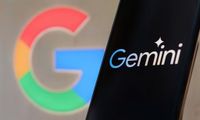In the ongoing antitrust proceedings against Google, internal data has revealed significant growth for its AI chatbot, Gemini, which reached approximately 350 million monthly active users worldwide as of March 2025. This surge in user engagement reflects the rapid adoption of AI technologies, but it still places Gemini behind its competitors, ChatGPT and Meta AI, according to a report by TechCrunch on April 23.
Gemini's rise has been remarkable, especially considering it only had 9 million daily active users in October 2024. By March 2025, that number had skyrocketed to 35 million daily active users, marking a fourfold increase in just a few months. Despite this impressive growth, Gemini's user base still lags significantly behind ChatGPT, which boasted around 600 million monthly active users in the same month. Meta AI, another key player in the AI space, had approximately 500 million monthly active users as of September 2024, as reported by Meta CEO Mark Zuckerberg.
While the numbers indicate a growing consumer interest in Gemini, they also highlight the competitive landscape of AI chatbots. The data, disclosed during Google’s antitrust suit, underscores the challenges the company faces in establishing a leadership position in the AI market. Google has made significant efforts to integrate Gemini into various platforms, including Samsung smartphones, Google Workspace apps, and the Chrome browser, making it accessible to millions of users.
However, the journey hasn't been without its setbacks. On April 3, 2025, Google announced a leadership change for Gemini, with Sissie Hsiao stepping down as head of the chatbot. She was replaced by Josh Woodward, who previously led Google Labs and oversaw the launch of NotebookLM. The decision to change leadership was reportedly aimed at sharpening the focus on the next evolution of the Gemini app, according to a memo from Google DeepMind CEO Demis Hassabis.
During a February 2025 earnings call, Google CEO Sundar Pichai emphasized the importance of Gemini for the company’s future. He mentioned plans to introduce ads in the Gemini multimodal model, similar to the ad placements in the AI Overviews section of Google’s search engine, as a strategy to recoup the high costs associated with processing AI workloads. However, Pichai clarified that ads would not be introduced in 2025, as the company plans to prioritize user experience first, offering both free and paid versions of Gemini.
"We do have very good ideas for native ad concepts," Pichai stated during the call. "But you will see us lead with the user experience and first make sure it works at scale." This approach reflects Google's ongoing commitment to ensuring that their AI tools provide real value to users while navigating the competitive marketplace.
Looking forward, Pichai has indicated that 2025 will be a pivotal year for Google, where the stakes are high as the company focuses on unlocking the benefits of technology and addressing real user problems. He expressed confidence that Gemini could become the next Google app to reach 500 million users, stating, "But we have some work to do in 2025 to close the gap and establish a leadership position there as well."
The rapid growth of Gemini is indicative of a larger trend in AI technology, where consumer adoption is accelerating at an unprecedented pace. As companies like Google, OpenAI, and Meta continue to innovate and expand their offerings, the competition in the AI chatbot arena is likely to intensify.
Industry analysts suggest that the success of AI tools like Gemini will depend not only on user numbers but also on their ability to deliver meaningful and effective solutions to users’ needs. As Google navigates its antitrust challenges and works to enhance its AI capabilities, the company’s focus on user experience will be critical in determining its future success in the market.
In conclusion, while Gemini has made significant strides in user engagement, it faces a daunting challenge in bridging the gap with its more established competitors. The coming months will be crucial as Google implements its strategies to improve Gemini's performance and solidify its place in the competitive AI landscape.




